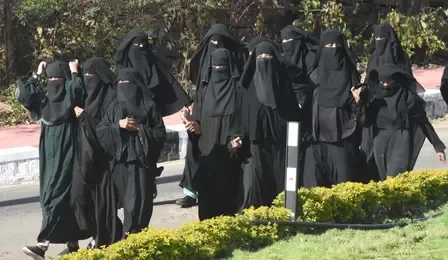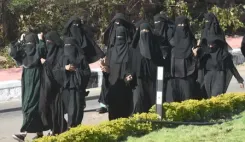Why Did the Leh Administration Justify Sonam Wangchuk’s Detention?

Synopsis
Key Takeaways
- The Leh administration justified Sonam Wangchuk's detention as lawful.
- The National Security Act was cited as the legal basis for his detention.
- Wangchuk's family was promptly informed of his detention.
- The Supreme Court is set to hear a petition regarding the case.
- Procedural safeguards under the Constitution were allegedly followed.
New Delhi, Oct 14 (NationPress) The administration of Leh has submitted an affidavit to the Supreme Court, supporting the detention of climate activist Sonam Wangchuk, who is based in Ladakh, under the National Security Act (NSA). They assert that the decision was made legally after a thorough review of all pertinent information.
The District Magistrate of Leh, Romil Singh Donk, mentioned that the detention order was issued on September 26 after he was satisfied with the circumstances surrounding the detention, which were deemed “prejudicial to the security of the State, maintenance of public order, and essential community services.”
“The order for detention was made by me after carefully evaluating the materials presented, in accordance with the law, and reaching a subjective conclusion regarding the situation in the local jurisdiction where Mr. Sonam Wangchuk had engaged in activities detrimental to the State’s security, public order, and essential community services, as detailed in the detention grounds,” the affidavit stated.
In response to claims that Wangchuk’s detention was unlawful and that he was mistreated, the Leh administration labeled these assertions as “baseless,” emphasizing that the detention was executed in strict compliance with procedural safeguards outlined in Article 22 of the Constitution and Section 8 of the NSA.
The affidavit also clarified that Wangchuk and his family were promptly notified about the detention and his transfer to Jodhpur Central Jail on the same day.
“The authorities appropriately informed the detainee's wife about his detention and location,” according to the affidavit, which also noted that a press release regarding the detention was issued on September 26.
Moreover, the grounds for detention were communicated to Wangchuk on September 29, within the required five-day timeframe as mandated by Section 8 of the NSA, and he acknowledged receipt by signing.
“Thus, all claims regarding the detainee or the petitioner being uninformed about the detention order under the National Security Act, 1980, are entirely false and misleading,” the affidavit continued. It also indicated that Wangchuk was medically examined multiple times and confirmed to be “medically and physically fit.”
Additionally, he stated to the medical officer that he was “not on any medication.”
The affidavit highlighted that “almost two weeks have passed since the detention, yet Mr. Sonam Wangchuk has made no representation to the detaining authority regarding his detention,” although his wife had sent a letter to the President, without addressing the Advisory Board or any statutory authorities.
In conclusion, the affidavit affirmed that all procedures under the NSA were followed in a timely manner, and the Advisory Board had been appropriately constituted, informing the detainee of his right to make a representation.
A two-judge bench of Justices Aravind Kumar and N.V. Anjaria of the Supreme Court is scheduled to hear a writ petition filed by Gitanjali J. Angmo, the wife of Sonam Wangchuk, contesting his detention under the NSA on Wednesday.









